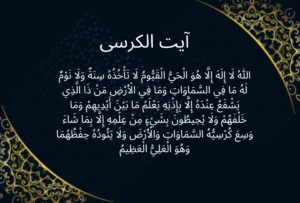Tawakkul refers to the act of putting your trust in Allah i.e. depending on Allah alone. It is to surrender the outcomes of our efforts to Allah and also to accept His decree regardless of whether it is how we expected. Tawakkul is about about realizing that Allah alone can provide for us, protect us from harm and that He alone controls all outcomes. We should always depend on Him over anyone else.
To understand Tawakkul, compare how we spend our time worrying about matters in our lives e.g our jobs, our career path, our children’s education, upbringing, savings, retirement etc… However, contrast that with the lives of the Messenger of Allah (PBUH) & his companions. They didn’t have steady incomes or savings, they either farmed or ran businesses for a living. Many of them didn’t even know where their next meal was going to come from. Despite all of this they spent in charity (sometimes all or most of their wealth), prayed, fasted, studied and spread Islam. They didn’t worry like we do even though the stakes were higher in their case. The only explanation is their trust in Allah. They were the best examples of Tawakkul.
Allah says in the Quran:
And whoever fears Allah – He will make for him a way out. And will provide for him from where he does not expect. And whoever relies upon Allah – then He is sufficient for him. Indeed, Allah will accomplish His purpose. Allah has already set for everything a [decreed] extent. (Surah Talaq 65:2-3)
The verses clearly state that whoever depends on Allah, Allah will take care of him/her in all matters. Things may not always turn out how we exactly wanted, but rest assured, it is what it best for us in the long term or in the afterlife. It is also clear that having Tawakkul is not just an option, but a requirement.
In Surah Al-Ma’idah verse 23 it is mentioned:
“…and put your trust in Allâh if you are believers indeed.” Quran (Surah Al-Ma’idah, 5: 23)
In a section of Surah Yusuf it mentions that when Yusuf (AS) was in prison, he asked one of his companions who was being freed to mention his (Yusuf AS) case to the king. Yusuf (AS) knew he would serve the king because of a dream he had that Yusuf (AS) interpreted. However, because Yusuf (AS) made the mistake of depending on this companion of his instead of Allah, his companion forgot to inform the king about him. Satan was able to make his companion forget, as a result Yusuf (AS) stayed in prison for a few more years.
Tawakkul on Allah Bears Fruit Only When You Do Your Part
When Musa (AS) and Bani Isra’il was being pursued by the Pharoah and his army, they were trapped at the Red Sea. They could not move forward because of the sea, and to the rear, the Pharoah’s army was catching up. When this happened many of the Israelites panicked and started putting pressure on Musa to do something. Some went as far as beginning to doubt that Allah would help them & that they would certainly be overrun. But Musa’s (AS) faith never faltered and he replied to them “Absolutely not! My Lord is certainly with me—He will guide me.” Allah rewarded his Tawakkul & inspired Musa (AS) to strike the sea with his staff. After this Allah split the sea and made a way out for them. This is mentioned in the Quran in Surah Ash-Shu’ara [61-68]
However, an important point to note in the story is that even though Allah could have split the sea on it’s own, He didn’t – Musa (AS) had to do his part, as small as it was, by striking the sea with his staff. It is important to understand that we should put our trust in Allah but we should do our part for whatever outcome we are expecting to achieve. For example, it wouldn’t make sense to appear for an exam, without having studied for it simply by putting your Tawakkul in Allah. Rather after having studied to the best of your abilities, you should rely on Allah for the result of your efforts.
Another related story to illustrate this concept – during the Khilafah of Umar Al-Khattab, he ran into a group of pilgrims that were travelling without any possessions, and were begging from the people around. This caught him by surprise as it was not normal to see people travelling without any provisions. When he (RA) asked them who they were, they replied, “We are the Mutawakkiloon (those who depend on Allah)”. To this he replied, “No. You are all Muta’akkiloon (those who look to be fed)” – meaning: They want to consume from the resources of the people. In essence he was calling them freeloaders.
The Battle of Badr
The Battle of Badr is one of the best examples of the implementation of Tawakkul. Before the battle, the Muslims had left Madinah hastily with the intention of intercepting the caravan of the Quraish that was coming back from Ash-Sham (modern day Syria & surrounding areas) led by Abu Sufyan. They had no intentions of getting into a full military confrontation with the army of the Quraish. Their intention was to reclaim some of the wealth that the Quraish had usurped from them when they were expelled from Makkah, and also to put economic pressure on the Quraish by raiding the caravan of Abu Sufyan. However, as was Allah’s plan, Abu Sufyan was successful in getting a message out to the Quraish for help and in evading the Muslims. The Quraish dispatched a 1000-strong battle-ready force led by Abu Jahl to respond to Abu Sufyan’s call. The Muslims were only about 313 in number and were ill-prepared for a battle.
When it became clear that the caravan was out of reach and they were about to face a fully-equipped army more than 3 times their size, the Messenger of Allah (PBUH) began to take every measure possible under the circumstances. He gathered intelligence about the size and whereabouts of the Quraish army. He positioned the Muslims strategically on the plains of Badr so that they had control of all the water sources depriving the Quraish. He lined up the Muslims in ranks – a practice not previously used in Arabia. It was only after doing everything within his control that the Messenger of Allah (PBUH) engaged in deep prayer to Allah through the night before the battle, to the point where Abu Bakr (RA) began to express concern about his well-being.
Allah rewarded the Tawakkul of the Muslims by blessing them with a resounding victory against overwhelming odds. The night before the battle, Allah sent down rain. The same rain refreshed the Muslims, but disrupted the Quraish. It made the ground firm around the Muslim lines, but muddy around the Quraish lines. All of the Muslims were blessed with deep sleep and woke up refreshed before the battle. Allah also reinforced the Muslims with Angels who actively participated in the battle. Although they weren’t a necessity for victory, Allah sent them down as assurance to RasulUllah (PBUH).
Allah (SWT), says in the Quran:
The believers are only those who, when Allah is mentioned, their hearts become fearful, and when His verses are recited to them, it increases them in faith; and upon their Lord they rely (Quran 8:2)
[Remember, O believers], when Allah promised you one of the two groups – that it would be yours – and you wished that the unarmed one would be yours. But Allah intended to establish the truth by His words and to eliminate the disbelievers (Quran 8:7)
Benefits of Tawakkul
Tawakkul earns the pleasure of Allah
Allah (SWT) says in the Quran:
So by mercy from Allah, [O Muḥammad], you were lenient with them. And if you had been rude [in speech] and harsh in heart, they would have disbanded from about you. So pardon them and ask forgiveness for them and consult them in the matter. And when you have decided, then rely upon Allah. Indeed, Allah loves those who rely [upon Him].[Aali ‘Imran 3:159]
Allah has stated clearly in this verse that Allah loves those who have Tawakkul. By this simple, yet powerful act, you earn the pleasure of Allah. This verse mentions another important point about the proper practice of Tawakkul – we should consult with people of experience when making a decision (also see How to Pray Istikhara). But when a decision has been made, we should rely on Allah and proceed. We should not constantly rethink our decisions if no factors change.
Tawakkul frees us from worry & concern
As mentioned before, the companions (RA) of RasulUllah (PBUH) didn’t have guaranteed sources of income or savings. Yet they didn’t worry about it even though the majority of them were poor. They didn’t hesitate to spend in charity and compete in doing good despite greater uncertainty than in our lives.
Umar bin Al-Khattab (RA) once came to RasulUllah (PBUH) to donate half his wealth – only to learn that Abu Bakr (RA) had come to RasulUllah (PBUH) not long before and donated all his wealth. And when Abu Bakr (RA) was asked about what he left for his family, he said “Allah & his messenger”.
Another such example is Uthman bin Affan (RA). He donated all his earnings from a caravan – that would have been his income for at least half the year – to the people in a year of famine. He almost single-handedly financed the campaign of Tabuk. He also bought the well of Ruma (which cost a fortune) for the people of Madinah with his own wealth when RasulUllah (PBUH) asked for a volunteer, so that the people were not charged outrageous amounts to draw water from it. Despite such unimaginable contributions, he remained wealthy by the grace of Allah. Whatever he spent in the path of Allah, he received more.
Tawakkul helps us overcome our fears
During the Hijrah of RasulUllah (PBUH) & Abu Bakr (RA) to Madinah, they briefly sought to evade their pursuers from Quraish in the cave of Thawr. The cave itself was very small and they barely fit in. The pursuers from Quraish had successfully caught up to them and were almost at the mouth of the cave and within sight of RasulUllah (PBUH) & Abu Bakr (RA).
Abu Bakr (RA) narrated:
I said to the Prophet (ﷺ) while I was in the Cave. “If any of them should look under his feet, he would see us.” He said, “O Abu Bakr! What do you think of two (persons) the third of whom is Allah?” [Sahih al-Bukhari 3653]
Sure enough Allah deterred the Quraishi pursuers. Abu Bakr (RA) mentioned later that since that day he never felt fear.
The realization that Allah has power over all things and no harm can reach us except if Allah wills it – can have a substantial effect on one’s mindset. RasulUllah (PBUH) & his Sahaba (RA) were able to accomplish some mind boggling feats of courage with this. In almost all armed conflicts they were outnumbered and outgunned, facing superpowers of the day. Yet they remained steadfast and Allah gave them victory.
To Conclude
As we have seen, putting our trust in Allah liberates us from our fears and concerns. It helps us earn Allah’s pleasure and ensures our chances of success in this world and the next. We should always depend on Him over anyone else. May Allah make us of the Mutawakkiloon. May Allah allow us not be dependant on anyone but Him.





